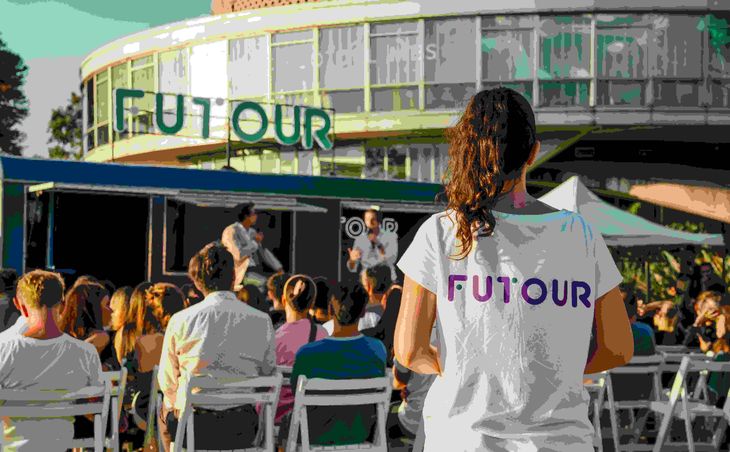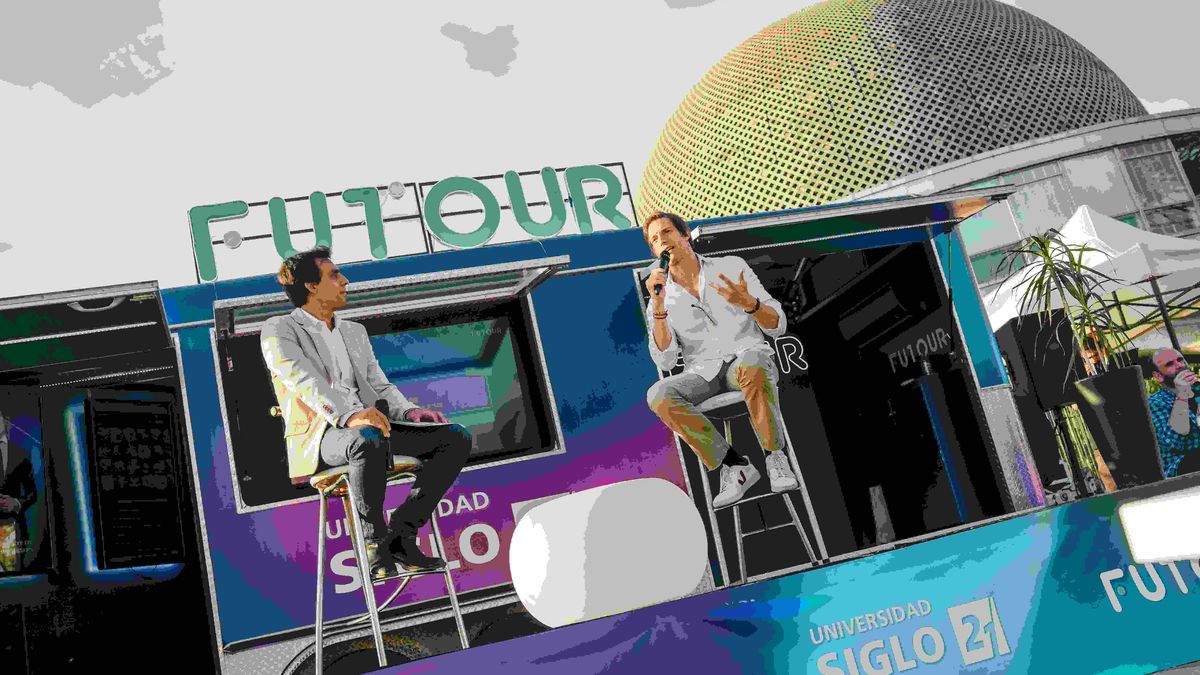The future has already arrived and Universidad Siglo 21 tries to rise to the occasion. Through Futour, the institution brought to various corners of the country the possibility for the public to learn about the careers of tomorrow with the aim that they can gain insight into the skills necessary for the market of the future.
Last Friday, the Galileo Galilei Planetarium in the City of Buenos Aires was painted in the colors of tomorrow as part of the Futour immersive experience, which completed its 5,000-kilometer journey throughout the country. The capital of the country was the arrival point of two months visiting cities such as Salta capital, Mar del Plata, Mendoza, Carlos Paz, Córdoba Capital and Rosario.
Great call
Through futuristic avatars, games with virtual reality oculus and the “Explore your Future” metaverse, more than 3,000 attendees were able to learn about professions that can adapt to their skills and that match the requirements of the current market. Among the careers promoted were Engineering in Innovation and Development, Bachelor’s Degree in Artificial Intelligence and Robotics and Bachelor’s Degree in Information Management.
century2.jpg
“Futour is an initiative that has the objective of bringing throughout Argentina the possibility that people can learn about and interact with the future. That they can learn about the technologies and rules of the future,” he explained to Ámbito. Leonardo Medrano, General Secretary of Academy and Development of the university.
In addition to the activities for the public, different personalities also participated who provided their experience and knowledge in the area in which they specialize. Among them are Paula Pareto, Nicolás Occhiato, Pablo Fredrikson, Cynthia Mamani, Mateo Salvatto, Tomás Balmaceda, Melina Masnatta and Iván de Pineda.
Search for upskilling and new opportunities
Technology is advancing at a rapid pace and the market demands for it are becoming stronger. For this reason, the university aims to show the public the possibilities it offers to adapt to changes.
“Futour is aimed at a wide audience, both high school students who are about to graduate and who can broaden their vocational vision, as well as all people who are working in more traditional professions but who are looking for upskilling,” Medrano detailed.
In this way, the university aims to show the public how they can continue training and updating their profession in accordance with current technological developments that are demanded by the labor market.
Democratization of education
It is known that the vast Argentine territory often deprives young people of the possibility of accessing a university degree due to the remoteness of these institutions. However, Universidad Siglo 21 is characterized by bringing the possibility of accessing higher education to every corner of the country.
“Siglo 21 used technology as a way to facilitate access to higher education. Argentina is very large and there are many small cities that do not have a nearby university to study, whether it is a degree, a technical degree or a specialization,” explained the secretary of the institution.
With the premise that education is a driver of change, since Siglo 21 they have historically been characterized by taking careers to remote places in the country and, in the case of Futour, the objective is for them to also learn about new emerging careers.
A step forward
The global pandemic due to Covid-19 led educational institutions to reformulate and rethink the modalities with which they taught classes. However, since Siglo 21, that premise had already been rethought a long time ago. Through virtual platforms and different physical spaces throughout the country, the institution offers three forms of access to education: virtual, hybrid and in-person.
“We are a university that offers different modalities of study. The objective has always been to facilitate access and for people to be able to choose the modality that best suits their possibilities,” Medrano explained.
In accordance with the objective of always being one step ahead, the university assures that the pandemic served to overthrow several prejudices. “Siglo 21 was a pioneer in Argentina in education mediated by technology, which was a very resisted learning modality. However, with the pandemic, people were able to notice that this type of education had value and that it has a different pedagogical modality,” he remarked.
The challenges ahead and how to face them
The market is constantly changing and so are the demands for working capital skills. Based on this, the university has an Observatory of the Future. It is about a group of professionals who are continually analyzing and researching future trends.
“Every month we generate a future report and based on that research we review the information offer. The creation of the observatory and the monthly report coincides with the challenge we have to train people in professions that, in many cases, are not yet in demand or that do not yet exist. However, they are professions that are growing both nationally and internationally,” he commented.
century3.jpg

This, according to the university secretary, coincides with the current challenge that higher education has where job demands are constantly updated and study plans are left behind. The objective of the observatory is to anticipate these demands and be able to provide a response.
“In the educational field, a difference is generated between the productive sector and what is taught at the university. Many times what is taught at university does not adequately prepare you for what the market requires. This happens due to the acceleration of change in the productive sector, it changes so quickly that there is no time to change a study plan and validate a career,” Medrano analyzed.
Fear of the future or inequity in access?
The advancement of technology often generates fear in the workplace since it is expected that the change in the process will lead many people to lose their jobs. An uncertainty that increases strongly with the development of artificial intelligence.
However, according to Medrano, the threat has nothing to do with technological development but with unequal access to education. “If we do not resolve rapid access to an education that is adequate to the needs of the productive sector of the future, that is the threat we are going to face,” he explained.
In that sense, he assured that the objective of the recent tour throughout the country has an optimistic outlook. “We believe that technology is an ally, but we also believe that it is necessary for education to accompany us and for us as a society to have a proactive view of how we have to act in the face of changes,” she said.
Source: Ambito
I am an author and journalist who has worked in the entertainment industry for over a decade. I currently work as a news editor at a major news website, and my focus is on covering the latest trends in entertainment. I also write occasional pieces for other outlets, and have authored two books about the entertainment industry.




